Past pro-democracy movements and campaigns adopted various codes of conduct to sustain their resistance and maintain nonviolent discipline. Here is a sample of some of such codes.
The 2019 Pro-democracy Struggle in Algeria
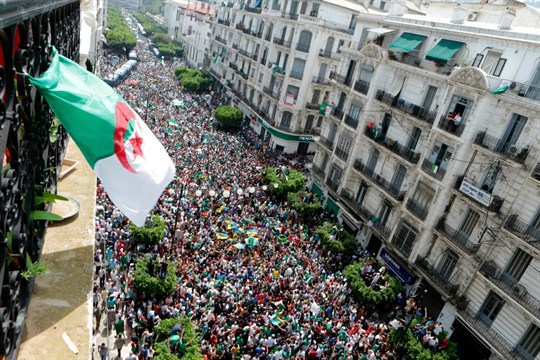
The “18 Commandments” were passed out to demonstrators in the city of Algiers:
- I will march peacefully and calmly,
- I will behave as a dignified and civilized man,
- I will be equipped with water and vinegar [to clean faces in case tear gas is used],
- I will not respond to any provocation,
- I will isolate and send to the police any “baltaguias” [agents provocateurs],
- I will not throw a single stone,
- I will not break a single window,
- I will not speak a single word that is out of line,
- I will not touch people or things,
- I will smile at police and gendarmes,
- I will offer women roses, [presumably allegorical for treating women with respect],
- I will share water with those who are thirsty,
- I will watch over the elderly, women, and children,
- I will walk with determination,
- I will forge through wind and high water,
- The Novemberists will look down fondly upon me [the Algerian independence activists who launched the anti-colonial insurrection in November 1954],
- I will clean streets and plazas after each march,
- I will teach a lesson to and serve as a model for onlookers.
[translated by Amber French]
The 2014 Umbrella Movement
Guidelines issued by the Occupy Central with Love and Peace (OCLP), one of the organizations spearheading the movement.
- Insist on the use of non-violence means…, never hurt anyone physically or mentally, or damage any properties.
- … Do not use any masks to cover faces.
- Do not bring any weapons or anything that can be used as weapons.
- When facing arrest, form a human chain and lie down to show our non-cooperation…
- … Do not try to hit back. Move to a safe place and ask for the help from the picket or medical team
- Leaders of the operation could be arrested anytime. Be prepared for changes in leadership and try to maintain good order all along.
The 2011 Tahrir Revolution
A protest booklet distributed on the Tahrir square during the first days of the revolution
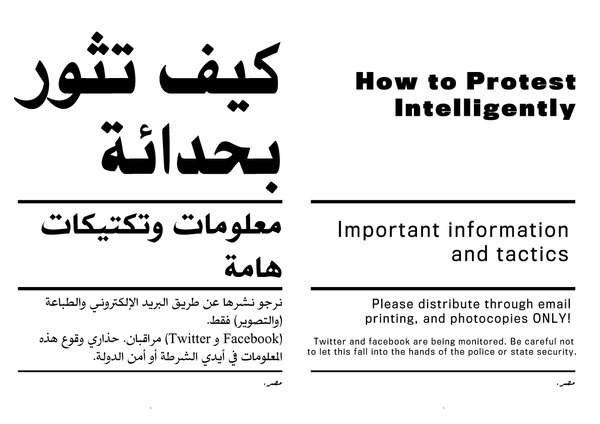
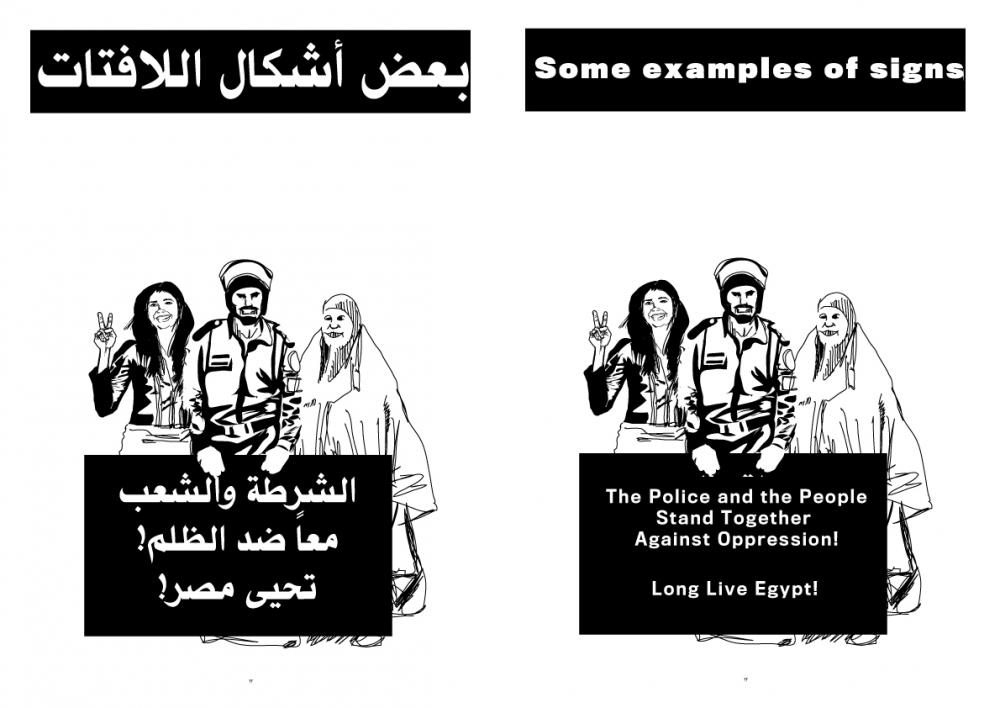
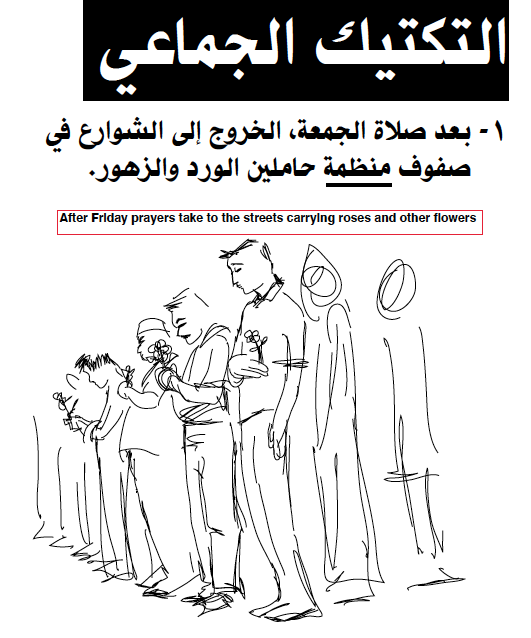
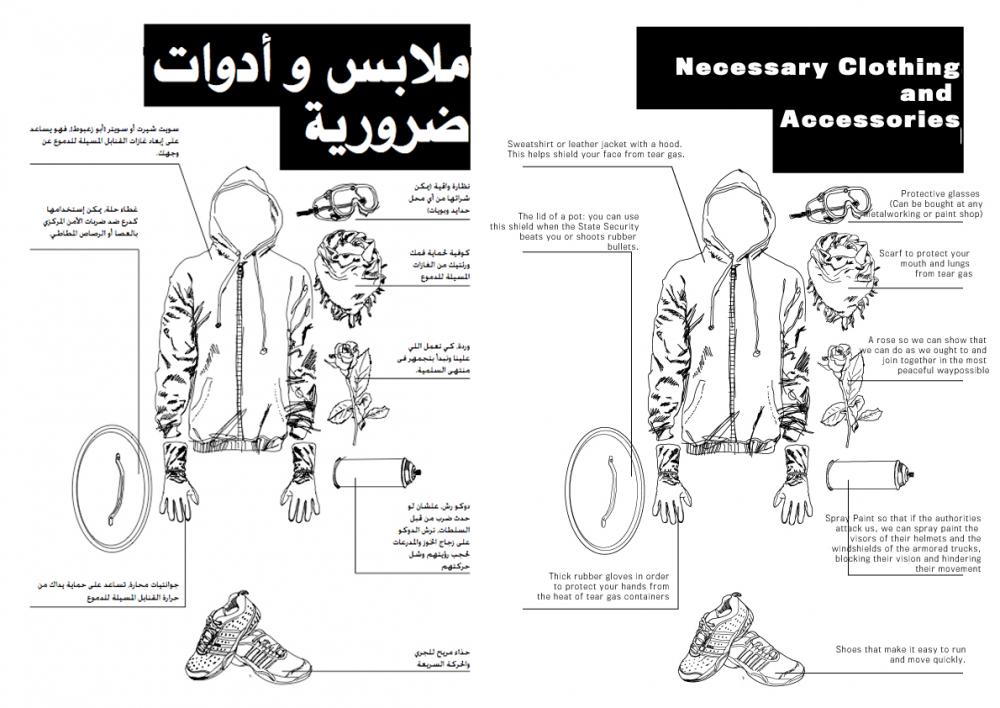
The 1968 Czechoslovaks’ resistance against the Warsaw Pact’s troops’ invasion and occupation
“Ten Commandments” of Czechs and Slovaks resistance against the Soviet troops were published in the newspaper Vecerni Prah on August 26, 1968 – 6 days after the Soviet invasion*:
When a Soviet soldier approaches you, YOU:
1. Don’t know
2. Don’t care
3. Don’t tell
4. Don’t have
5. Don’t know how to
6. Don’t give
7. Can’t do
8. Don’t sell
9. Don’t show
10. Do nothing
*Source Czech and Slovak Defiance of Invasion – 1968-1969 in Gene Sharp, Waging Nonviolent Struggle. 20th Century Practice and 21th Century Potential, Porter Sergent Publishers, Boston 2005, p. 200.

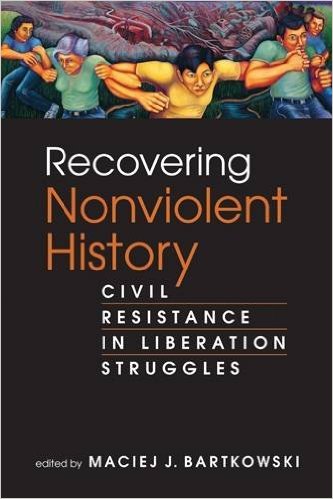


Recent Comments